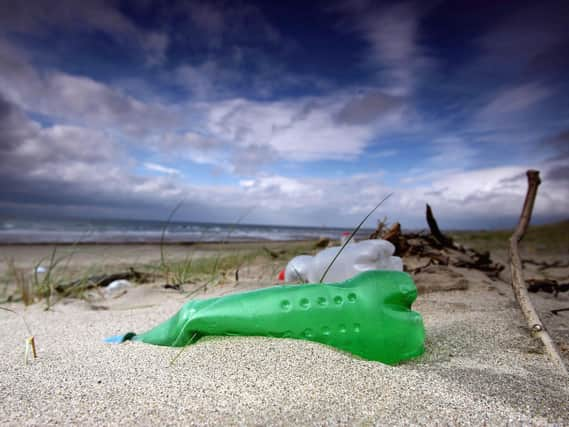Scientists call for rethink of Europe's 'whole plastic system' to end environmental harm


It also calls for “polluter pays” policies, higher prices for virgin plastics and better recycling methods.
The proposals are among a raft of measures laid out in a new paper – Plastics Packaging in a Circular Economy – from the European Academies of Sciences (EASAC), which includes the UK’s Royal Society.
Advertisement
Hide AdAdvertisement
Hide AdEASAC academics warn that current efforts to resolve the plastics crisis are ineffective and misleading, and conflicts in the whole system – from production to end-of-life –should be addressed.
They say the ongoing rise in production of new plastic cannot continue and a switch to efficient reuse is necessary.
Based on their findings, they have laid out seven recommendations for how European policy-makers should transform how plastic is made, used and disposed of in order to slow and reverse damage to the environment, biodiversity and human health.
“We do not question the essential role and benefits of plastics in our way of life,” said Professor Michael Norton, of the EASAC. “But the warning of our report is not a dystopia of environmental activists. It’s science.
He added: “Reducing the leakage of millions of tonnes of plastic waste into the marine, terrestrial and freshwater environments is incompatible with banking on continued growth in the use of plastics.
“Macro and microplastics are widespread on land, in the seas and are even found in the air.
“For many species, plastics are deadly, through entanglement and ingestion, while microplastics are transmitted throughout the food chain.
“In the history of mankind, the 21st century might actually be remembered as the plastics age.”
Advertisement
Hide AdAdvertisement
Hide AdGlobal plastic production has increased from around 1.5 million tonnes in the 1960s to almost 400 million tonnes a year today.
With an estimated 12 million tonnes ending up in seas worldwide annually, this is contributing to a growing mountain of plastic litter building up across the planet.
Estimates suggest 100,000 marine mammals and turtles and one million seabirds are killed through getting trapped by or swallowing man-made debris every year.